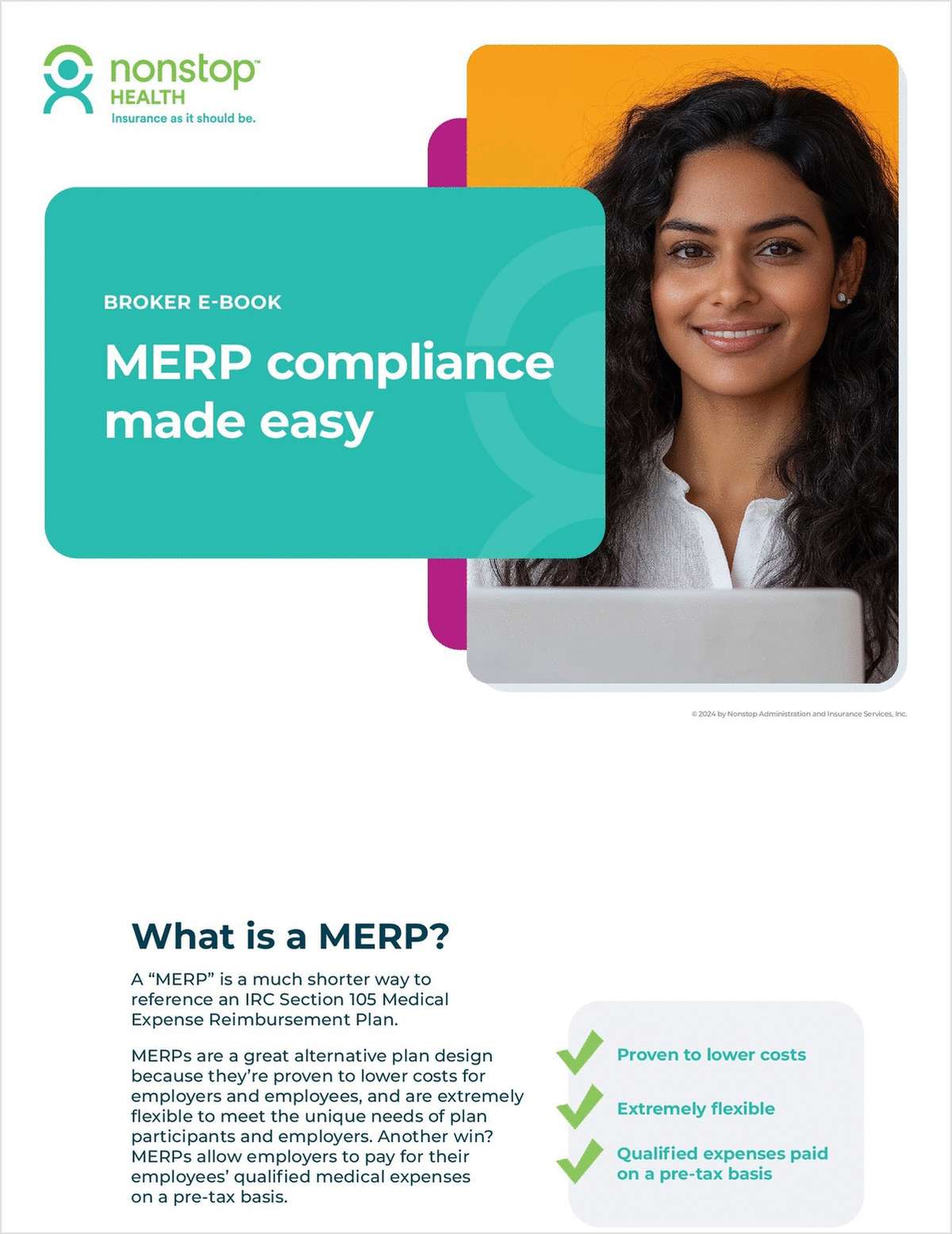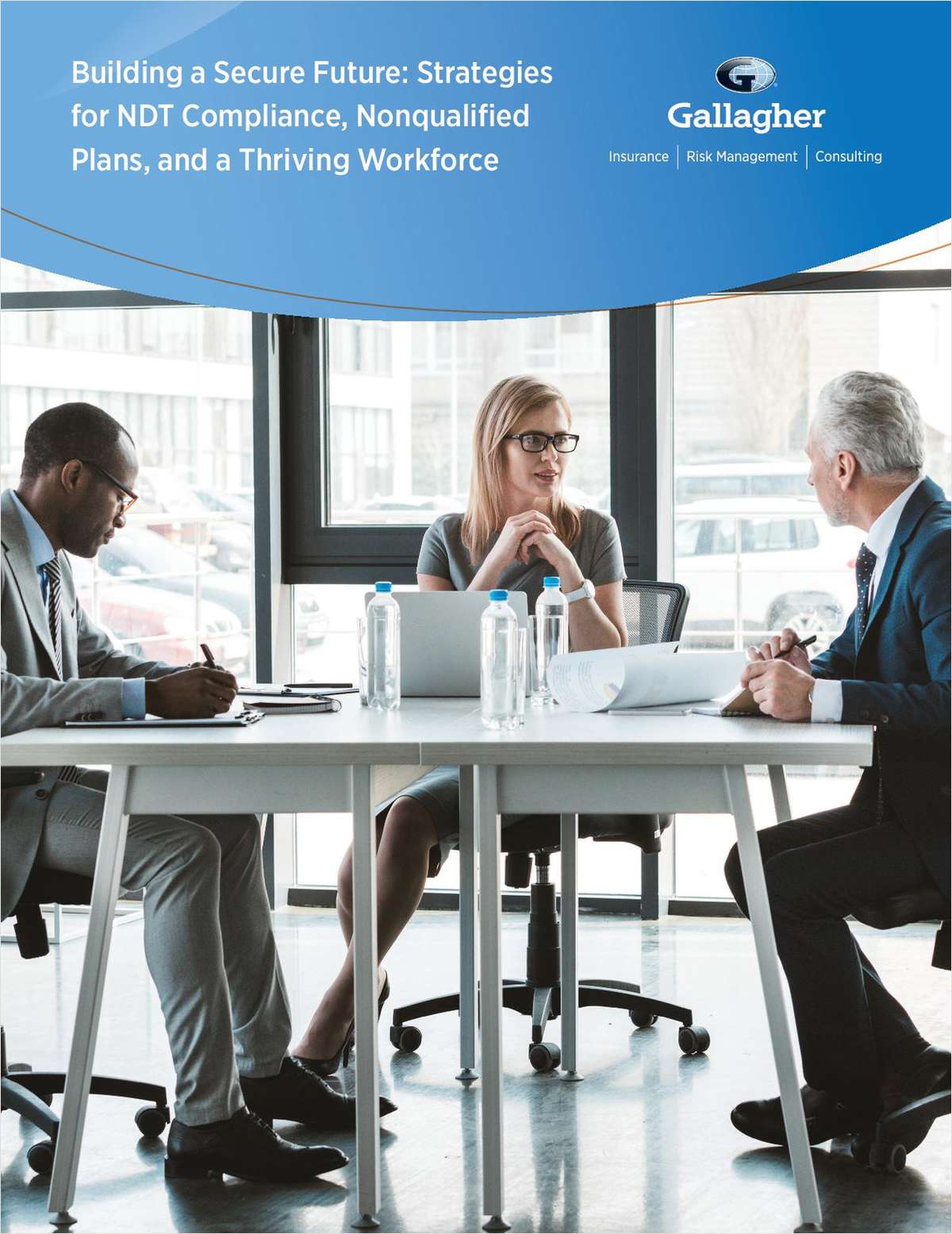Just how concerned should U.S. employers be about protecting their employees from the Ebola virus? That depends largely upon the industry you're in—at least for now.
World health authorities are already declaring Ebola a worldwide catastrophe in the making, comparing it to the HIV contagion of three decades ago. Their concern is twofold: no vaccine exists against it, and travelers can (so far) export the virus from one part of the world to another with little chance of detection.
Immediately, several job descriptions are being targeted for prevention measures:
-
All health care classifications;
-
Funeral and mortuary workers;
-
Laboratory workers;
-
Humanitarian workers;
-
Airline and airport workers; and
-
First responders.
Because of the relative ease with which the virus can be transported and transmitted, many experts are advising all employers to at least take note of the potential for the disease to enter their work environment and to begin by talking about it with employees.
"While it is too early to assert that Ebola will be a major health issue among the U.S. population, employers in the United States have started asking what preparations and actions they should be taking," wrote attorney Thomas Benjamin Huggett of the Philadelphia office of the law firm Littler Mendelson. "Employers should consider the wide range of decisions that may arise, including: restricting international travel; medical inquiries and potential quarantines for employees who have traveled; leave from work; and educating management and employees."

The fast-moving virus is, according to many health care experts, outpacing attempts to contain its spread. The American public was already worried about a major outbreak back in August, when the Harvard Business Review released findings that nearly 40 percent of those surveyed said they feared a huge contagion. Whether those fears are out of proportion to the risk is impossible to gauge at this juncture. As a result, businesses should be ready to respond to employee concerns with an action plan.
Huggett said workplaces will largely be divided into two categories in terms of Ebola response: health care employers and everyone else.
"Within the U.S., health care workers are at the greatest risk of infection. Because their workers may come into direct contact with EVD, health care employers need to review their infectious disease protocols to ensure they are prepared for the specific risks associated with the virus," he said. "Health care and other employees have the right to remove themselves from a work situation that they have reasonable justification to believe presents an imminent and serious danger to their life or health. When an employee exercises this right, he or she must be protected from retaliation for expressing a safety concern.
Huggett said health care employers should follow a strict protocol with their employees by briefing them about the nature and transmission of the disease, and developing best practices for interacting with patients, disposing of biohazards properly, and following strict hygienic practices at all times.
"For all other workplaces, returning travelers are the primary concern. Affected countries are requested to conduct exit medical screenings of all persons at international airports, seaports and major land crossings for unexplained febrile illness consistent with potential Ebola infection. Nevertheless, returning business travelers from the affected areas should be notified of the symptoms and asked to be alert to their surfacing within 21 days after return," he said.
Employers can't legally take more aggressive actions such as requiring returning travelers to undergo a medical exam for Ebola, he said.
 "Under the Americans with Disabilities Act, U.S. employers may make inquiries into medical conditions only where they are job related and consistent with business necessity. Because there are not international travel restrictions and because the risk of transmission is very low, requiring a medical examination for returning travelers would likely not be considered a necessity," he advised.
"Under the Americans with Disabilities Act, U.S. employers may make inquiries into medical conditions only where they are job related and consistent with business necessity. Because there are not international travel restrictions and because the risk of transmission is very low, requiring a medical examination for returning travelers would likely not be considered a necessity," he advised.
But if an employee is diagnosed with the virus, the employer needs to let others know without disclosing the employee's name.
"If an employee is actually diagnosed with EVD, communication with other employees for the protection of their health and safety will likely be necessary," Littler Mendelson said on its website. "In such situations, the medical privacy of the sick employee will need to be honored. Employers should seek guidance from counsel and follow the direction of the Public Health Department in any such situation."
Business travelers using five major U.S. airports are likely to see the containment strategy in action. Airports initially designated as sites for Ebola screenings are JFK in New York, Washington's Dulles International Airport, and the international airports in Atlanta, Newark and Chicago (O'Hare).
"An estimated 150 people per day will be checked, using high-tech thermometers that don't touch the skin," AOL reported, adding that the White House said 90 percent of international travelers from the hardest hit nations of Liberia, Sierra Leone and Guinea would be "fever checked."
However, says the World Health Organization, most business travelers heading for Africa have little to worry about.
"Transmission requires direct contact with blood, secretions or other body fluids of infected living or dead persons or animals, all unlikely exposures for the average traveler," the WHO says.
But because of the uncertainties over how well the Ebola outbreak can be contained, there's little downside in taking more rather than less action to discuss an Ebola strategy in the workplace.
"It is a good time to take a look around and assess how prepared we may be in the workplace for a potential epidemic the likes of Ebola. Possible workers' compensation issues abound with an event such as this," says Robert Wilson, president and CEO of workerscompensation.com. "While a full blown [Ebola] epidemic, such that seems to be occurring in some parts of the third world, is less likely here, employees must be trained and proficient at required protection measures to insure that remains the case. Sloppy habits and poor training can kill in a situation like this. Whether you work in an office, a school or in the medical community, you should be aware of both risks and protocols surrounding exposure to bodily fluids and blood borne pathogens."
And with the world's response to the epidemic morphing daily, employers should keep an eye on the news for any new requirements that may affect them.
Complete your profile to continue reading and get FREE access to BenefitsPRO, part of your ALM digital membership.
Your access to unlimited BenefitsPRO content isn’t changing.
Once you are an ALM digital member, you’ll receive:
- Breaking benefits news and analysis, on-site and via our newsletters and custom alerts
- Educational webcasts, white papers, and ebooks from industry thought leaders
- Critical converage of the property casualty insurance and financial advisory markets on our other ALM sites, PropertyCasualty360 and ThinkAdvisor
Already have an account? Sign In Now
© 2024 ALM Global, LLC, All Rights Reserved. Request academic re-use from www.copyright.com. All other uses, submit a request to [email protected]. For more information visit Asset & Logo Licensing.








